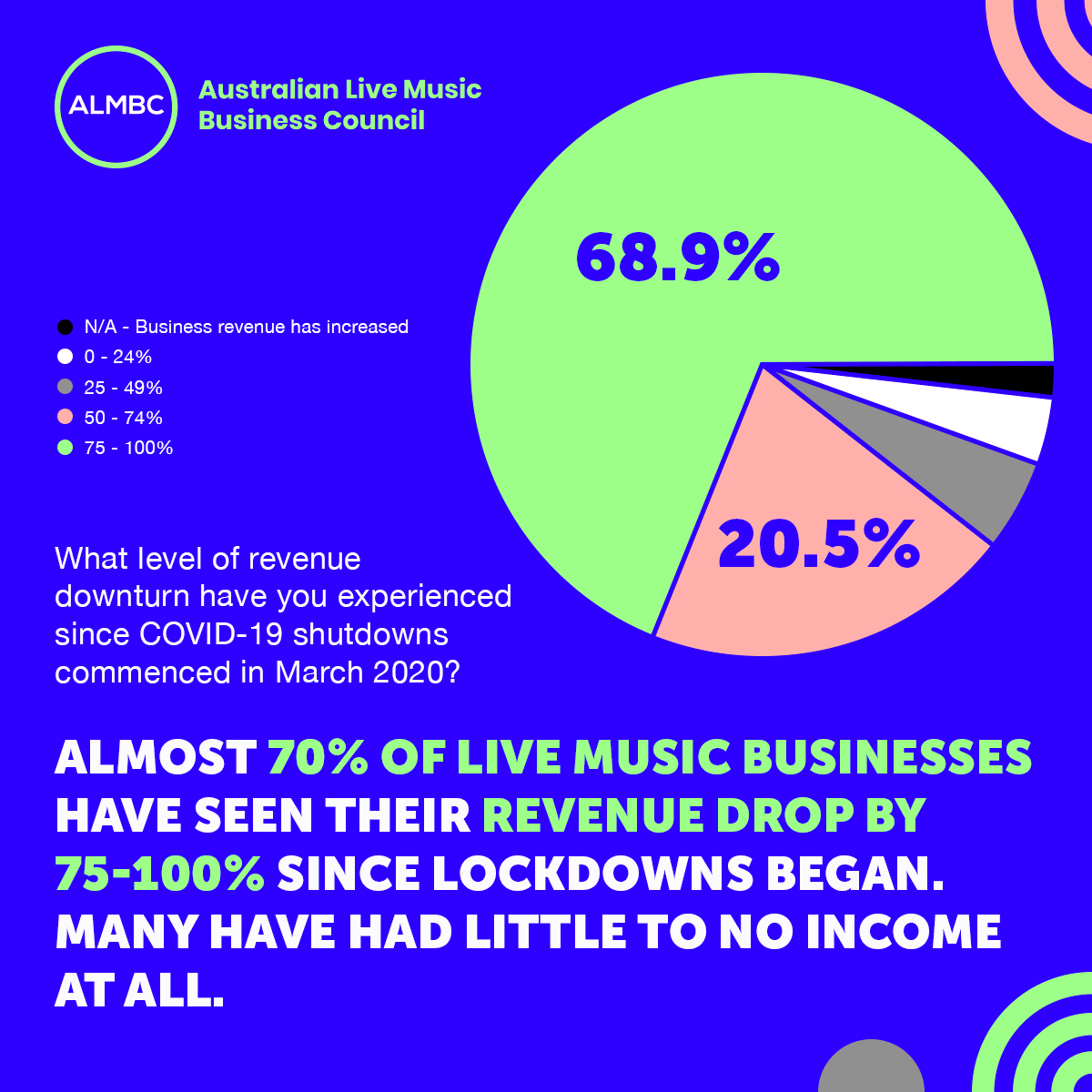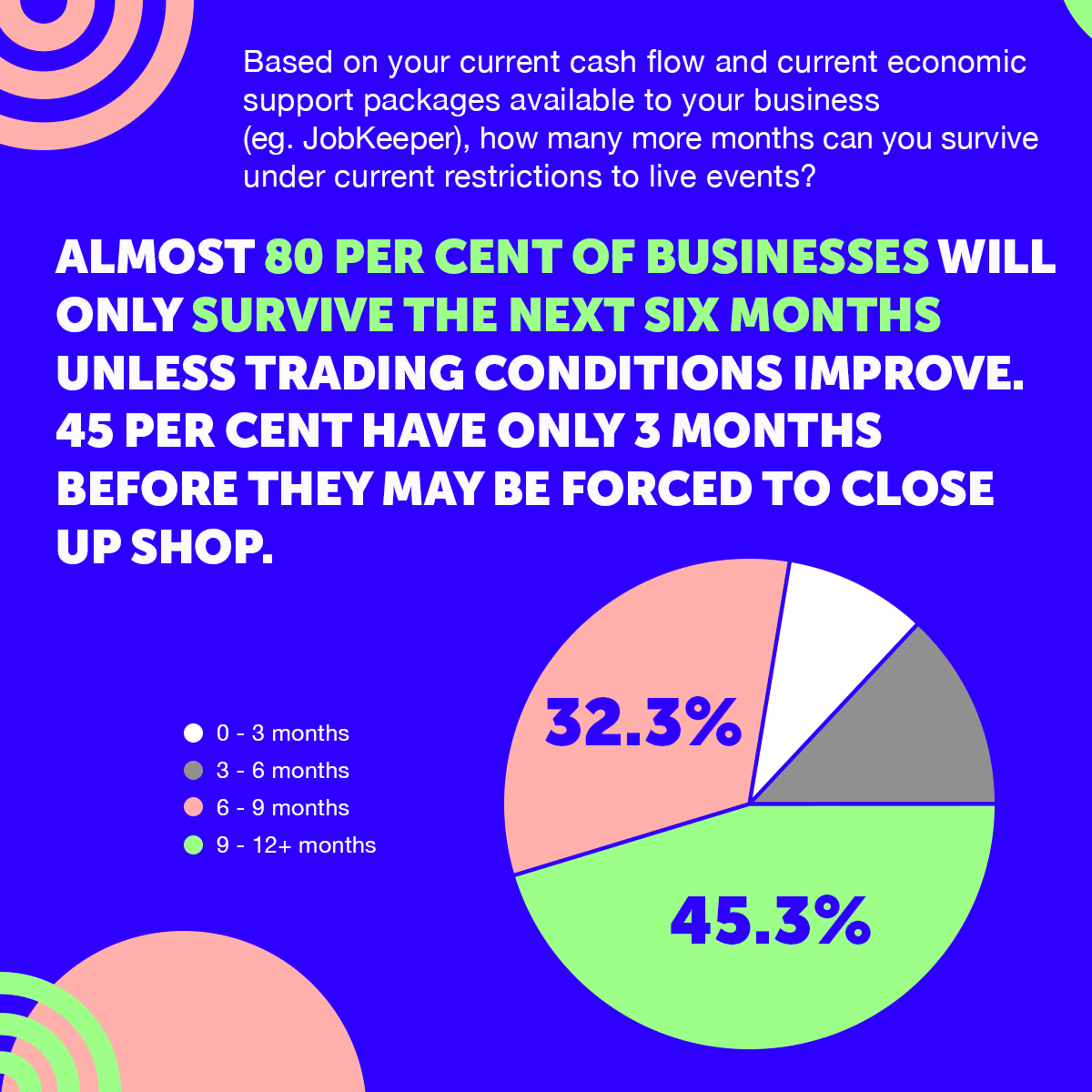The Australian Live Music Business Council (ALMBC) has called on all state and territory governments to ease restrictions on live music venues alongside some staggering statistics from its latest member survey.
Completed earlier this year, the ALMBC’s latest survey reveals dire circumstances for an industry that came to a halt amid last year’s pandemic and resultant restrictions around gathering and borders, and is still struggling to fully return to its feet.
Almost 70% of live music businesses surveyed said they’d seen their revenue drop by 75-100% since lockdowns began, while 77% said they only expected to survive the next six months if trading conditions improved and restrictions were eased. 45% said it would be only three months before they were forced to close.
The survey found that venue capacity restrictions were the greatest barrier to the live industry fully recovering, along with the loss of wage support (with JobKeeper to end this month) and interstate border closures. Almost 93% of respondents said that the uncertainty of the past year has negatively impacted their mental health.


“The perception that live music is back disguises the devastating reality facing our industry. Those shows that are being presented are hampered by restrictions and crowd limits making them unprofitable and unsustainable, with many venues running at well under half their usual capacity for the indefinite future,” commented ALMBC Executive General Manager Craig Spann.
“Meanwhile, national tours have not been feasible since March last year. Snap lockdowns and wildly varied quarantine conditions have robbed the industry of confidence while also losing revenue and increasing costs – losses are significant and are putting our industry even further behind as we try to recover.
“Our hands are tied with Government policy preventing us from getting back to work supporting our employees and the thousands of small businesses around the country that are integral to the industry.”
The ALMBC is urging governments across the country to liaise with the sector to ease the restrictions impeding the live music industry’s recovery.
One of their proposals is the implementation of an “essential live music industry worker permit”, which would allow artists and crew to travel interstate in the case of a border closure or hotspot designation. ALMBC says that, under the plan, if a border closure was triggered, artists would need to liaise directly with relevant health authorities to notify them of travel and adhere to health guidelines.
“With next to no community transmission, we are confident that we can work with authorities to protect the community in our venues while looking after the future of our industry,” Spann added.
“All we ask is that Government at all levels work with us and listen to the deep concerns of our members.”
The ALMBC has also launched the Gig Ready Dashboard, a website which provides updates around COVID-safe restrictions around the country.












